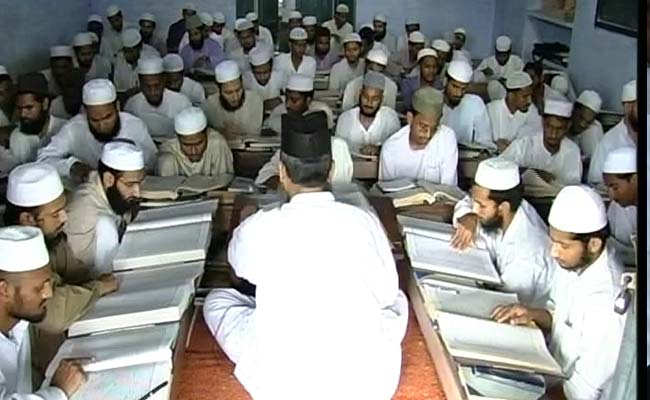Rampur (UP): 14 Hindu children are enrolled at the Jameeat-ul-Ansar Madrassa in Rampur, in western Uttar Pradesh. A few kilometres away, 150 Muslim students study at the Saraswat Vidya Mandir Inter College, run by Rashtriya Swayamsevak Sangh or RSS.
Rampur is only 200 km away from Muzaffarnagar, the epicentre of deadly communal violence that left over 50 people dead and thousands homeless less than two years ago.
Madrassas have for long been associated with religious Islamic teachings, but are now evolving, like this one, towards the contemporary education system by teaching other mainstream subjects.
Hindu children have been attending classes at the madrassa, since last few years. The principal, Khalid Ansari, says it is love for the Urdu language that draws them here as well.
“Even non-Muslims want to study Urdu. Parents are happy that their children are getting to learn Urdu along with other subjects,” said Mr Ansari, whose father set up the madrassa in 1952.
At the RSS-run Saraswati Vidya Mandir Inter College, students refer to each other as “brother”, offer the morning Vandana or prayer, regardless of which community they belong to.
“The parents want values, besides education. We have many Muslim students from good backgrounds who perform very well in the school and have been offered good jobs,” says Saraswat Vidya Mandir principal Jitendra Chauhan.
Tazim Khan, 16, a student of class 11 at the institution says, “We hear of people converting Hindus to Muslims and Muslims to Hindus but what is the point really? Are we not all humans?”
“People ask me why I send my children to a madrassa, but I tell them that it is not an issue. The quality of education and teachers is good and all subjects are taught here,” Indu Srivastava, whose 6 and 8 years old children attend classes at the madrassa said.
Parents here also say they prefer schools which are closer home and have an easy admission process; religious or ideological affiliations of the institutes are less important, they say.

